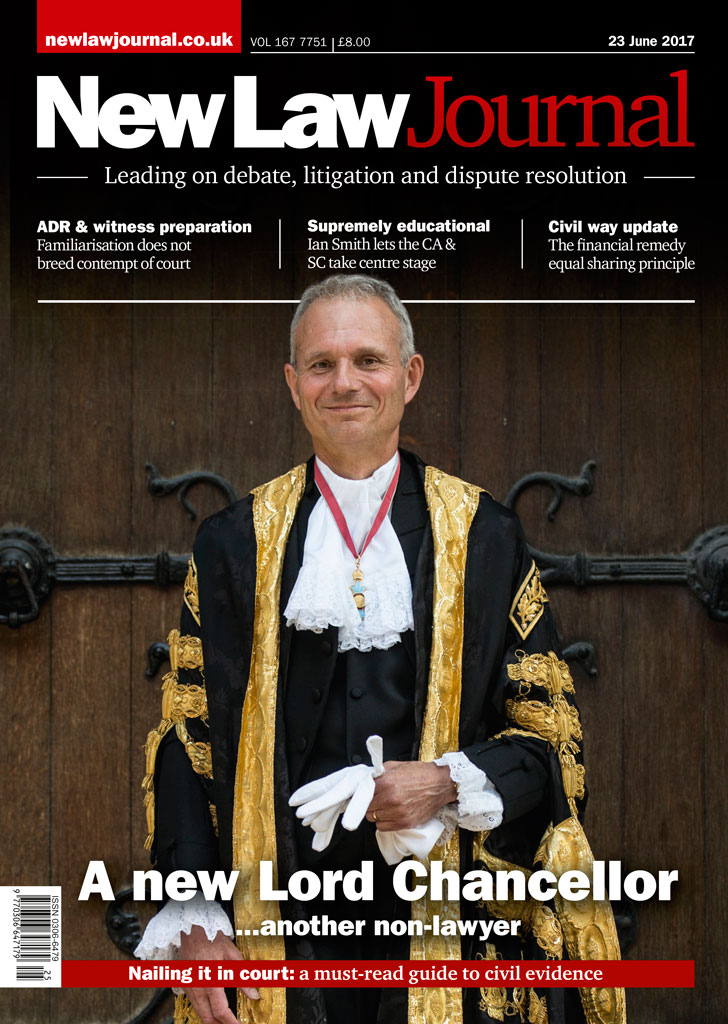
Letter to the editor
David Lidington is the fourth non-lawyer in a row to be appointed to the office of Lord Chancellor (see ‘Making the grade?’,Jon Robins). There is no shortage of lawyers on the benches of the two Houses but it begins to look as if government policy is to exclude them from the selection process.
Our experience so far of lay appointments is of: (a) fiscal measures (increasing fees and reducing legal aid) which have a negative impact on access to justice; and (b) unseemly spats with the Lord Chief Justice about law reform and the freedom of the press. Let us hope that the new incumbent pays more than lip service to the constitutional importance of an independent judiciary.
Our civil law (contract, tort and equity) has been developed bottom-up over the centuries by those who sit in the courts and administer it: it is judge-made law that is the bedrock of justice in our civil courts. This is in contrast to the









